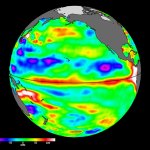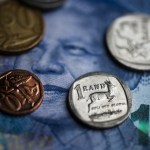The Thai capital’s air turned gray and thick in recent days, particularly during mornings, as seasonal weather changes prevented pollutants such as exhaust fumes and factory smoke from dissipating. Periodically, the air was worse than in more infamously polluted cities such as New Delhi or Shanghai.
Thailand’s junta responded by telling people to stay indoors during dangerous pollution spikes and ordering a crackdown on dirty building sites and vehicles. The rainmaking agency flew sorties to try to dissolve the mist. But the haze lingered, signaling a longer-term fight ahead to curb peaks in pollution.
“Bangkok is seeing more and more cars on the road every month,” said Kakuko Nagatani-Yoshida, the UN Environment Programme’s regional coordinator for chemicals, waste and air quality. “Construction cranes dot the city. Bangkok already experiences regular air pollution. What we’ve seen this week is just an extreme of an already unhealthy situation.”
The metropolis of about 10 million people is one of many worldwide facing the scourge of deadly air pollution, which the World Bank estimates caused over $5 trillion of welfare losses globally in 2013 alone. In Bangkok, the smog threatens to both damage health and repel some of the millions of tourists who are a lifeblood of the Thai economy.
The city received more then 20 million international overnight visitors in 2017, the highest such figure in the world, according to a gauge compiled by Mastercard Inc. Tourists come for gastronomic delights, rooftop bars and infamous nightlife, often before heading to beach resorts such as Phuket.
The Tourism Authority of Thailand, which strives to market the country to holidaymakers, appears to see little threat to the inflow of visitors from the bad publicity sparked by the haze.
“It’s a concern for me personally, but it’s not yet a concern for the tourism industry,” its Deputy Governor Srisuda Wanapinyosak said. “Many tourists spend their time by the beach or on an island which isn’t experiencing the problem.”
The UN’s Nagatani-Yoshida, who is based in Bangkok, isn’t so sure.
“Studies have shown that tourists consider things like air pollution when deciding on a destination,” she said. “Who wants to worry about deadly air pollution on vacation? Bangkok is famous for its rooftop bars and restaurants with incredible views. But what’s the point when you can’t see the skyline?”
On Jan. 14, the air quality index, or AQI, climbed past 180 in the morning in Bangkok, putting the city among the top 10 most polluted in the world, according to data from AirVisual. Readings below 50 are considered safe, while anything above 300 is considered hazardous.
Apart from vehicle and factory fumes, officials say crop-burning to clear farmland and the practice of setting trash alight both exacerbate the haze. The gray mist includes tiny, toxic PM2.5 particles, which can penetrate deep into the lungs and enter the bloodstream.
As the weather changes and temperatures climb in the weeks ahead, Bangkok’s air quality is expected to improve. But the pattern of dangerous spikes adds pressure for stricter emission controls and a tighter embrace of clean energy.
“Renewable energy is the clear solution to this problem,” said Bundit Sapianchai, president of BCPG Pcl, Thailand’s second-largest renewable energy company. “We can manage the problem by getting rid of contributing factors, like combustion engines and coal or gas power plants.”
While Bangkok waits for long-term solutions, residents and tourists alike are donning pollution masks — so much so that reports of shortages have emerged — and checking how bad the air is, hour by hour.
“We check our phones to look at the AQI rating every day before going out,” said Lu Haijin, a tourist visiting from China. “We’re used to that — we come from Shanghai, where the air is usually even worse.” DM






















 Become an Insider
Become an Insider